Directory
- Share
Matthew Leming
- Alumni
- United States
- 2016 PhD Psychiatry
- Churchill College
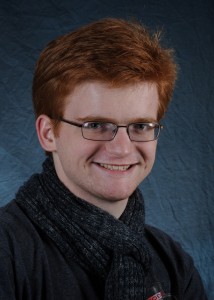
Matthew Leming
- Alumni
- United States
- 2016 PhD Psychiatry
- Churchill College
I grew up in a Navy family, moving around five different states before attending high school. As a student in the 5-year Computer Science BS/MS program at the University of North Carolina at Chapel Hill (with a minor in Russian language!), I became interested in computational analysis of diffusion MRIs of the brain as a means of detecting neurological disorders. This research took me to laboratories in St. Petersburg and London, as well as many hours on Linux machines at the UNC medical school. At Cambridge, I will pursue a PhD in Psychiatry, modeling structural and functional MRI data in infants using a neural connectome. I hope to establish a practical and theoretical basis for a new approach to neural connectomes that focuses on analyzing circuitous connections in the brain, as a way to predict mental illness and neurological disorders in children. In the future, I would like to found a research-based company that develops diagnostic image analysis techniques, focusing on both developing this technology and delivering it to the hands of medical doctors that can use it to directly impact the lives of others.
Previous Education
University of North Carolina
Maeve Lentricchia
- Alumni
- United States
- 2018 PhD Classics
- Queens' College
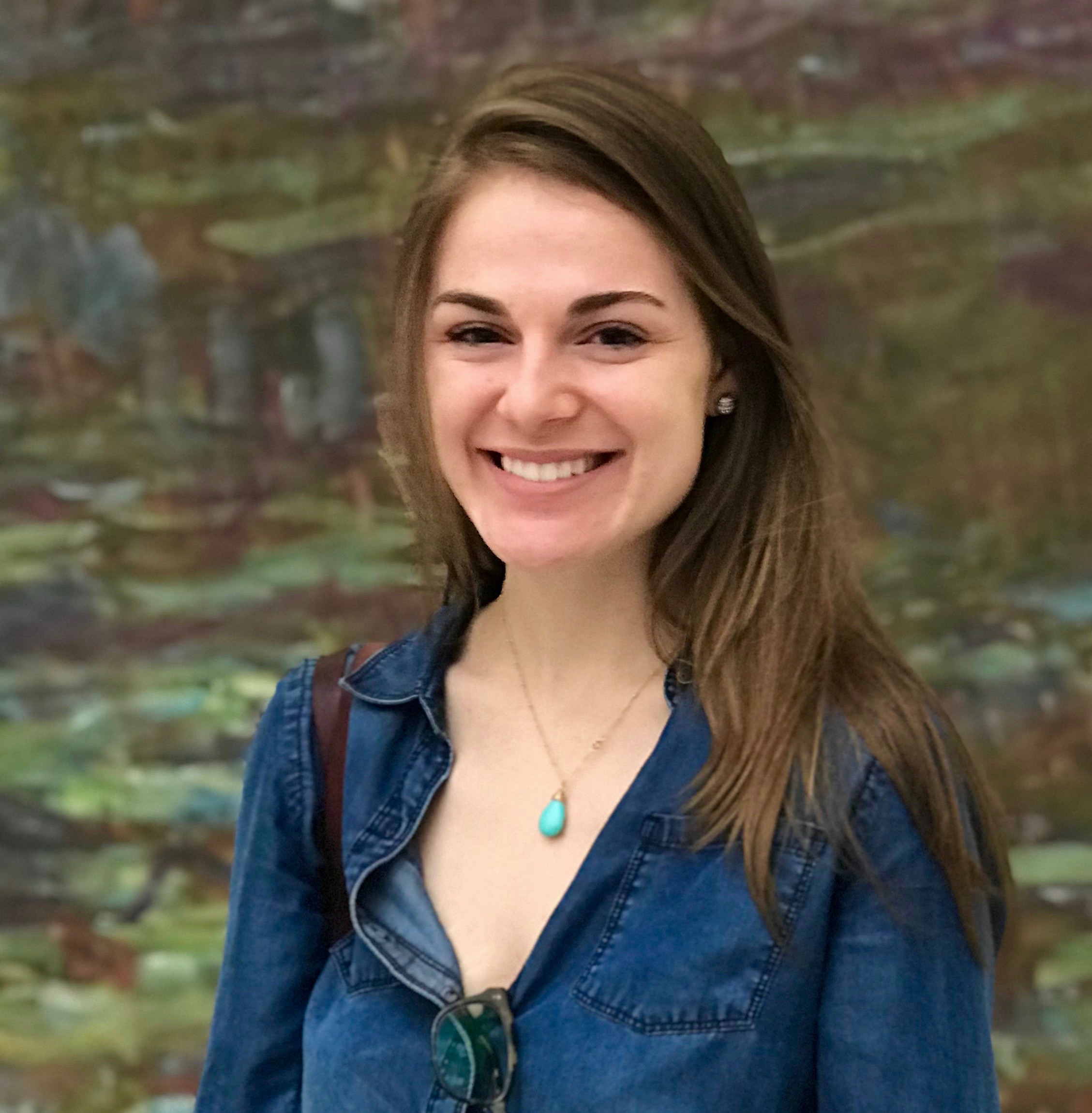
Maeve Lentricchia
- Alumni
- United States
- 2018 PhD Classics
- Queens' College
As an undergraduate at Dartmouth College, I developed an interest in death and dying. This interest alone does not make me unusual. People have always been interested in, if not concerned by, death. Mortality, after all, is something which all humans share. It is also something which has important consequences for how we live and think about our lives. Considering death involves considering what it is to live, and considering whether death can be a harm involves determining how to live a good life. As a PhD candidate in Ancient Philosophy at Cambridge, I will focus my research on Lucretius’ treatment of death and poetic immortality. With Lucretius as my guide, I plan to address the following questions: To what extent does a sustained reflection on mortality direct one’s philosophical and practical activities? In what sense does such an examination influence how we understand the shape or structure of human life? How might thinking about the nature and value of death shed light on questions of well-being, metaphysical and personal identity, and prudential reasoning? In thinking through the issues involved in these discussions it is my goal not only to illuminate Lucretius’ own views, but also offer some assistance in our own engagement with the same questions.
Previous Education
Dartmouth College
University of Cambridge
Anne Lheem
- Alumni
- United States
- 2023 MPhil Multi-Disciplinary Gender Studies
- Trinity College
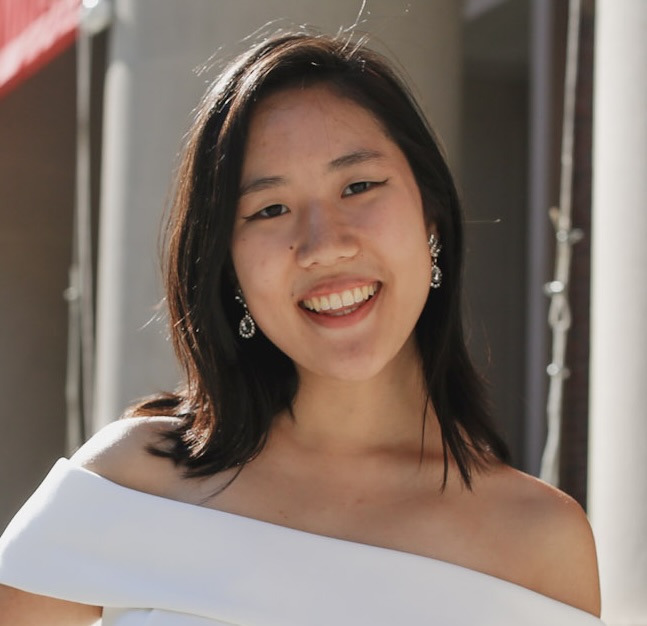
Anne Lheem
- Alumni
- United States
- 2023 MPhil Multi-Disciplinary Gender Studies
- Trinity College
I grew up in a small town in North Carolina, after which I studied anthropology and global health at Harvard College. Combined with my interests in cultural psychiatry, history of medicine, and East Asian studies, I wrote a senior honors thesis unpacking the history, present-day implications of, and lived experiences behind women’s engagements in the plastic surgery industry in South Korea, highlighting how colonial and imperial influences gave way to the normalization of aesthetic standards rooted in racialized and gendered notions of “beauty,” and discussing this phenomena’s implications in South Korean discourses around health, gender, citizenship, and geopolitics. I plan to continue this line of research through Cambridge’s MPhil in Multi-Disciplinary Gender Studies, as I apply a more rigorous understanding of feminist theory and methodologies to my work. More generally, I am passionate about devising more culturally and gender inclusive ways of understanding mental health, fighting for equity in health and education access, and contributing to more diverse approaches of studying—and teaching—the social sciences, especially in its application to health and education.
Previous Education
Harvard University Anthropology 2022
Rachel Linfield
- Alumni
- United States
- 2019 MPhil Health, Medicine, and Society
- Jesus College
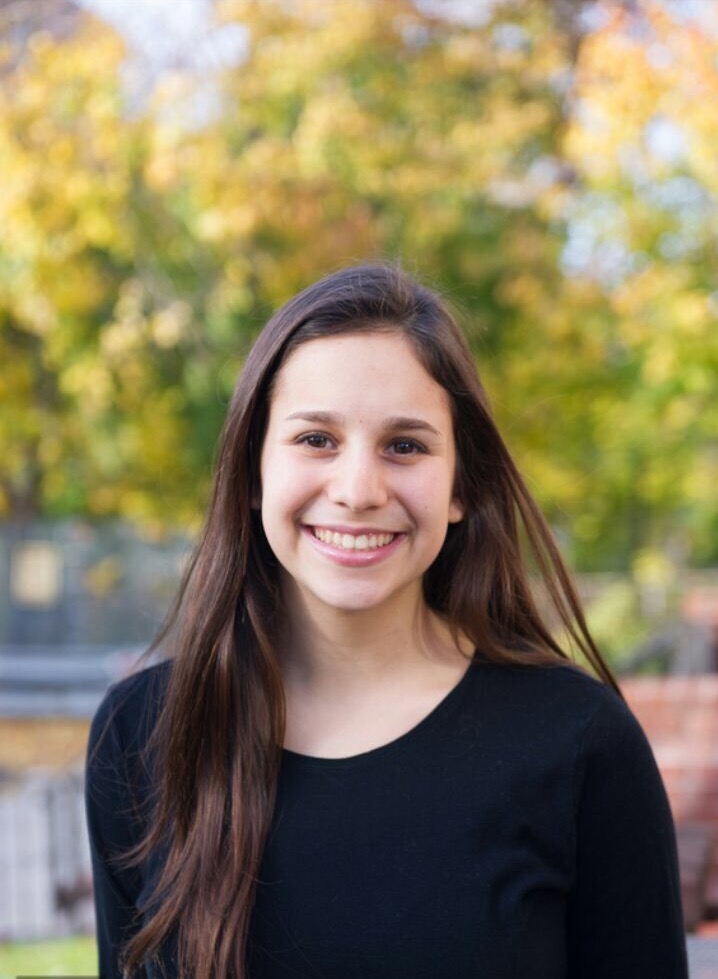
Rachel Linfield
- Alumni
- United States
- 2019 MPhil Health, Medicine, and Society
- Jesus College
As an undergraduate at Princeton, I am majoring in the History of Science and completed the pre-med curriculum. My research interests at Princeton revolve around the medicalization of postpartum depression, the feminist self-help movements who pushed for increased medical recognition of their experiences, and the narratives of women, across time and geography, who suffer from postpartum depression. Through an MPhil in Health, Medicine, and Society at Cambridge, I intend to expand my senior thesis work on organized feminism’s advocacy for medical treatment of postpartum depression, with a focus on how social movements within England influenced the psychiatric treatment of postpartum depression.
Ultimately, I hope to attend medical school and then specialize in the treatment and care of women’s mental health, to honor each woman’s story, including, where relevant, experience with motherhood. I am excited to learn from and with the diverse scholars who comprise the Gates-Cambridge community.
I am one of seven children and attended schools in five different states growing up. I am always look for some competitive hoops; at Princeton, I serve as Captain of Women’s Club Basketball. But my favorite activity is simply to be with people, whether my teammates, the residents I guide as a Residential College Adviser, or the community at the Center for Jewish Life. I am excited to do likewise at Cambridge.
Previous Education
Princeton University Bachelor's Degree in History 2019
Elijah Foo Keat Mak
- Alumni
- Singapore
- 2013 PhD Psychiatry
- Trinity College
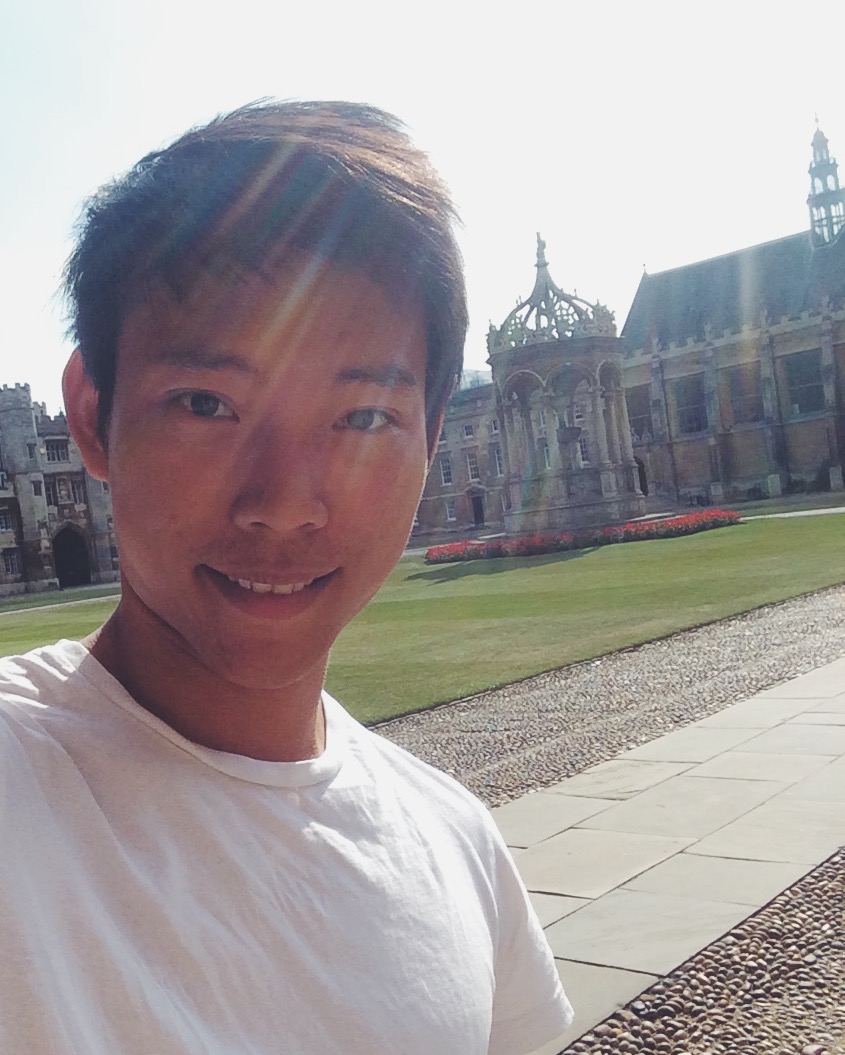
Elijah Foo Keat Mak
- Alumni
- Singapore
- 2013 PhD Psychiatry
- Trinity College
Upon completing my degree in Psychology, I made my first foray into psychiatry by working as a research assistant to at Singapore's National Neuroscience Institute. While administering neuropsychological assessments for dementia patients, I became fascinated by the global challenge to halt the disease. I decided that fighting against neurodegenerative disorders would be my life endeavor. With a MRI research fellowship at University at Buffalo’s Neuroimaging Analysis Center, I am investigating the neural correlates of cognitive impairment in Parkinson’s disease. It is just so exciting to be part of a respected team at Cambridge, where I aim to improve early and accurate diagnosis of dementia subtypes. Through the utilization of mulitmodal neuroimaging techniques, I will be working with Professor John O'Brien to identify distinctive and signature patterns of cerebral abnormalities associated with specific dementia subtypes.
Stephen Metcalf
- Scholar
- United States
- 2019 PhD Public Health and Primary Care
- Corpus Christi College
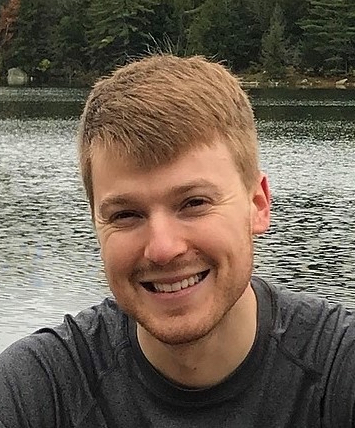
Stephen Metcalf
- Scholar
- United States
- 2019 PhD Public Health and Primary Care
- Corpus Christi College
Growing up in eastern Kentucky, in the heart of the Appalachian region of the United States, I was fascinated by questions of meaning in life and devastated by the hardship I witnessed at home and abroad. Through opportunities like the Kentucky Governor’s Scholars Program and the Brown Fellows Program at Centre College, I experienced the transformative power of education, mentorship, and community and further explored these themes of meaning and inequity. I am now pursuing similar questions through PhD research on systems of resilience: Given similar histories of adversity, why do some people do better than others? Learning more about resilience systems may help us better support those who are struggling. I look forward to working with the Gates Cambridge community as we explore fundamental life questions and help others thrive.
Previous Education
University of Cambridge Master of Philosophy Epidemiology 2015
Centre College Bachelor of Science Behavioral Neuroscience 2014
Links
https://scholar.google.com/citations?user=-tyJuPAAAAAJ&hl=en
https://www.linkedin.com/in/stephenmetcalf
Dillon Muhly-Alexander
- Alumni
- United States
- 2018 MPhil Development Studies
- Jesus College
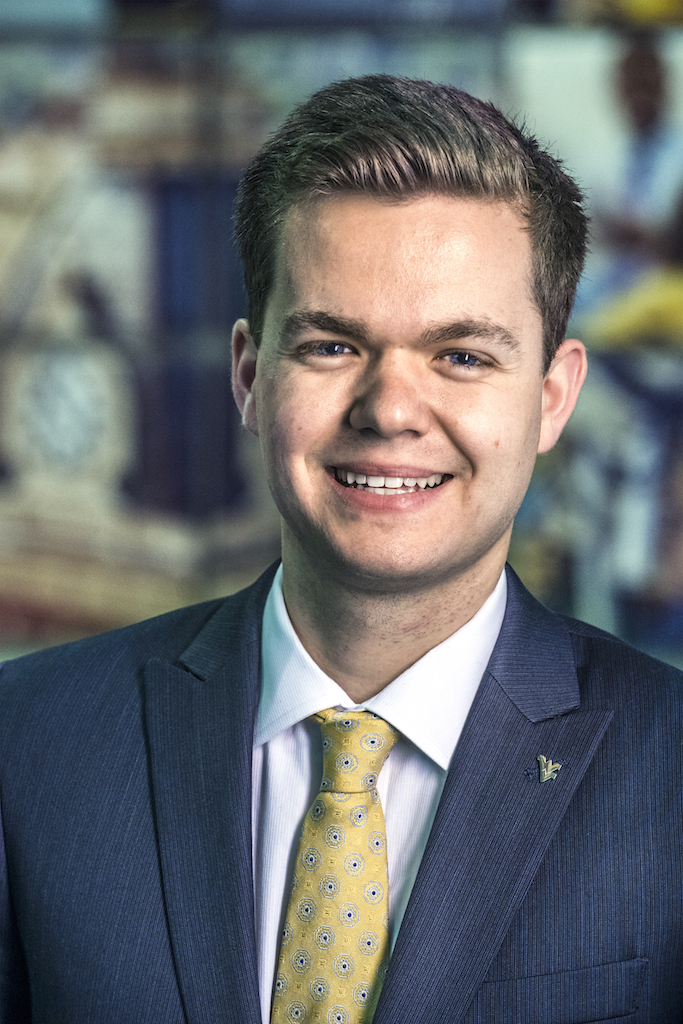
Dillon Muhly-Alexander
- Alumni
- United States
- 2018 MPhil Development Studies
- Jesus College
Born and raised on a farm in rural West Virginia, I developed an early interest in food security and accessibility. During my undergraduate studies at West Virginia University, I joined a research team that identified and mapped every food distribution site in West Virginia and became increasingly interested in “development” as a formal academic field. I studied abroad and conducted research on economic development projects in Nicaragua, Timor-Leste, and Rwanda. In addition, I worked for the Senate President of the West Virginia Legislature and the West Virginia Secretary of State. These experiences led to an appreciation of the impact politics exerts on the economic development process. I currently serve as an AmeriCorps VISTA and work on program development related to increasing accessibility to higher education among first-generation and low-income students. I plan to work in international development for several years before returning home to work on economic development in West Virginia and Appalachia. I am excited and honoured to join the global Gates Community.
Previous Education
West Virginia University
Nathan Nakatsuka
- Alumni
- United States
- 2012 MPhil Biological Science
- Churchill College

Nathan Nakatsuka
- Alumni
- United States
- 2012 MPhil Biological Science
- Churchill College
I was born in Honolulu, Hawai’i and lived there for almost all of my life before college. I then moved to the frigid northeast and spent four years at Harvard, graduating with an AB in Chemical and Physical Biology. With the Gates Cambridge Scholarship, I received an MPhil in Biological Science in the Genetics Department at Cambridge, doing research at the Wellcome Trust Sanger Institute in the laboratory of Dr. Ines Barroso. I then joined the MDPhD program at Harvard Medical School through the Harvard-MIT Health Sciences and Technology track, and obtained my PhD in the Harvard Systems Biology program doing research in the laboratory of David Reich on computational population genetics focused on India and the Americas. I am currently a postdoctoral fellow with Rahul Satija at New York Genome Center and Eric Nestler at Mount Sinai while also in the NYU psychiatry research track residency. Outside of academics, I spend much of my time doing community service and athletics (tennis and long-distance running), as well as Christian fellowship activities.
Annika Pecchia-Bekkum
- Alumni
- United States
- 2014 PhD Medicine
- Pembroke College
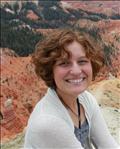
Annika Pecchia-Bekkum
- Alumni
- United States
- 2014 PhD Medicine
- Pembroke College
In all but birthplace, I’m effectively a Salt Lake City, Utah native, but somehow managed to avoid becoming an avid skier. I started college a little early at Salt Lake Community College, then transferred to the University of Utah where I graduated with honors degrees in both Chemistry and English. I graduated with a Master’s degree in Chemistry also at the University of Utah. At Cambridge, I am working with Drs. K.G.C. Smith and Paul Lyons in the Cambridge Institute for Medical Research. After my time at Cambridge, I plan on completing postdoctorate research and then attending medical school. Ultimately, I wish to specialise in paediatric immunology and treat patients as well as conduct research.
Katrin Pfeil
- Alumni
- Germany
- 2012 PhD Criminology
- Selwyn College
Katrin Pfeil
- Alumni
- Germany
- 2012 PhD Criminology
- Selwyn College
I graduated from the University of Magdeburg with a degree in Psychology. Subsequently I worked in a forensic psychiatric hospital for two years and started my further professional education in legal psychology before coming to Cambridge. Last year I started a Master’s programme in Criminology, followed by a PhD. I am especially interested in eyewitness psychology and ways to improve witness performance of older adult witnesses. During my PhD I will look at a new investigative interviewing technique and will conduct a series of experiments with older adults. In future, I hope to contribute to German and international investigative interviewing and help minimize wrongful convictions. After finishing my further professional education I also intend to work for law courts as a chartered forensic psychologist and furthermore, provide training for judges and lawyers concerning the psychological and psychiatric overlap with the legal system.
Hannah Pincham
- Alumni
- Australia
- 2008 MPhil Education (Thematic route)
2009 PhD Experimental Psychology - St John's College

Hannah Pincham
- Alumni
- Australia
- 2008 MPhil Education (Thematic route)
2009 PhD Experimental Psychology - St John's College
Hannah completed her PhD in the Department of Experimental Psychology under the supervision of Dr Denes Szucs. Following her time in Cambridge, Hannah worked as a Post-Doctoral Research Fellow at the Anna Freud Centre and University College London. Hannah completed medical training at The University of Sydney in 2018 and is further specialising in Psychiatry. She is a Senior Lecturer in Psychiatry (conjoint) at the University of New South Wales.
Colleen Rollins
- Alumni
- Canada
- 2017 PhD Psychiatry
- Darwin College
Colleen Rollins
- Alumni
- Canada
- 2017 PhD Psychiatry
- Darwin College
Experiences with the lived effects of psychiatric and neurodegenerative illnesses have largely shaped my curiosity to understand the intricacies of the human brain and aspiration to help those who suffer from insults to its fragility. As an undergraduate student at McGill University majoring in Neuroscience, I became involved in research ranging from brain plasticity, to Alzheimer’s disease, to computational genetics, to factors influencing the etiology of schizophrenia. Particularly, I developed an interest in using computational tools to characterize and quantify alterations in brain anatomy related to different disorders of the brain. At Cambridge, I will pursue a PhD in Psychiatry, with a focus on using a multimodal approach combining brain structural and functional data and cognitive measures to explore the neural mechanisms for the manifestation of hallucinations in schizophrenia. An understanding of the phenomenon of hallucinations has far-reaching implications for treatment strategies, commonalities between disorders, and insights into the nature of consciousness. Due to the inseparable integration of clinical observations and scientific questions, I ultimately hope to complete a medical degree after my PhD, with the overarching goal of translating neuroimaging findings into clinical practice. Academics aside, I practice acroyoga, rock climbing, and figure drawing. I’m humbled and excited to join this diverse community of scholars.
Previous Education
McGill University
Anna Kathryn Schoefert
- Alumni
- Germany
- 2011 PhD History and Philosophy of Science
- Downing College
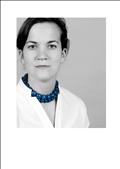
Anna Kathryn Schoefert
- Alumni
- Germany
- 2011 PhD History and Philosophy of Science
- Downing College
With the generous support of the Gates Cambridge Trust, I am starting my PhD in the History and Philosophy of Science. My doctoral research concentrates on mid-twentieth-century wet brain collections and material cultures in neurosciences, psychiatry, and neurology, illustrating the interdisciplinary and collaborative nature of brain-related research; the transnational context of locally produced knowledge; and the consequences of spatial arrangements of basic research, clinical practice, and industry-led studies. It aims to provide a desperately needed historical perspective for mid-twentieth-century medical collections in neuropathology, many of which have been dissolved, archived as museum collections, or re-investigated with contemporary methods in the last two decades.
Isaac Sebenius
- Alumni
- United States, Canada
- 2021 PhD Psychiatry
- Emmanuel College
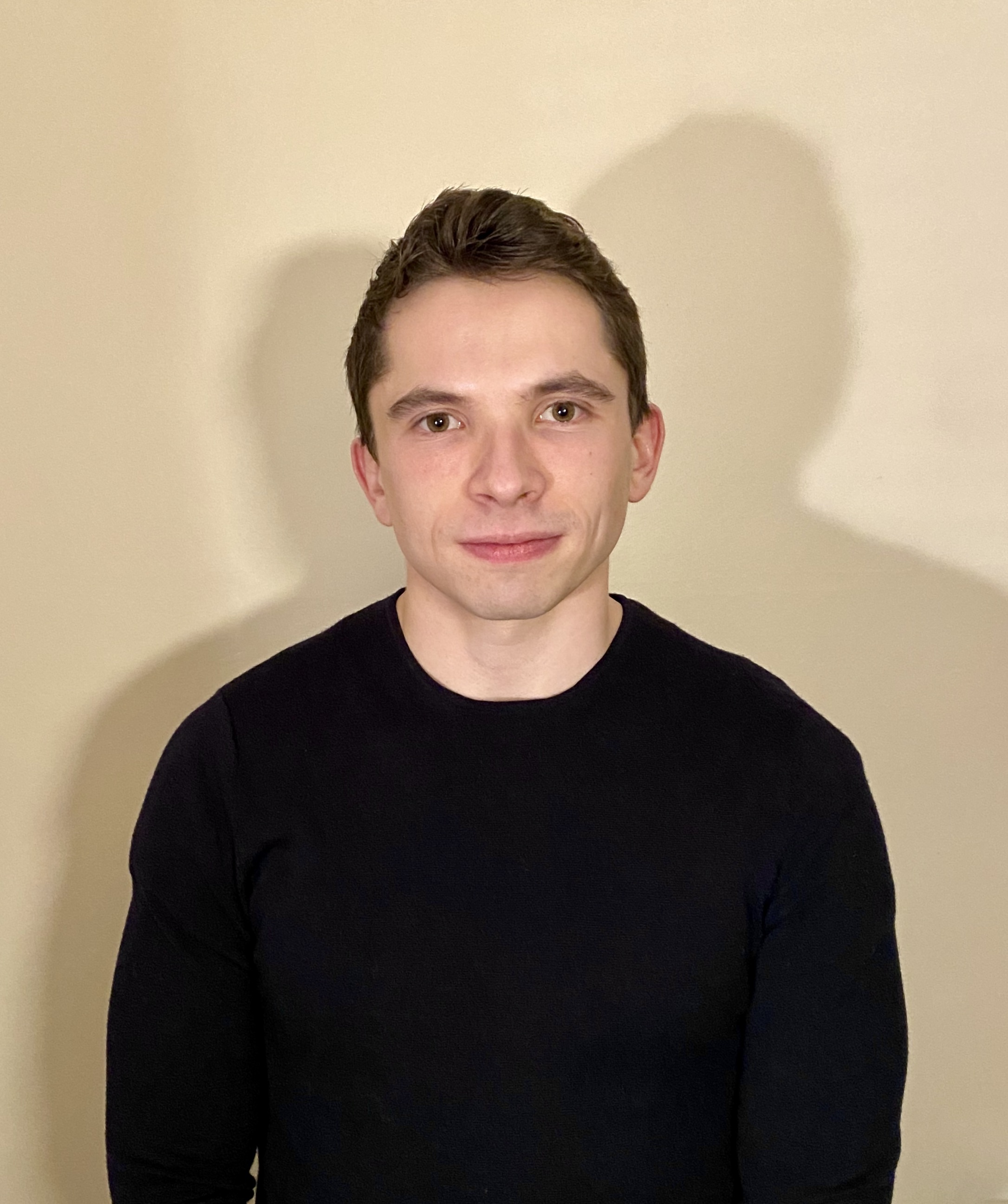
Isaac Sebenius
- Alumni
- United States, Canada
- 2021 PhD Psychiatry
- Emmanuel College
I grew up in Cambridge, MA, and studied molecular biology and computer science at Harvard University. During college, I developed an interest in approaching open questions in biology – from DNA assembly to ALS genomics – by creating new computational methods that leverage biological knowledge rather than relying on existing off-the-shelf techniques. I am also committed to addressing issues related to mental health, a focus developed through work as a peer counselor and first responder as well as by reading the literature of authors who struggle with mental health disorders. During my doctoral research, I will combine my interests in computational biology and psychiatry to better understand and alleviate mental illness. Specifically, I will leverage machine learning to integrate a wide range of biological data (including neuroimaging, genetic, and transcriptomic data) to deepen understanding of mental illnesses such as schizophrenia as well as subclinical phenomena such as psychotic experiences in the general population. Beyond science, I enjoy running, hiking, playing classical piano, and exploring contemporary music.
Previous Education
University of Cambridge Advanced Computer Science 2021
Harvard University Molecular and Cellular Biology 2020
Henrik Røed Sherling
- Scholar
- Norway
- 2022 PhD Philosophy
- St John's College
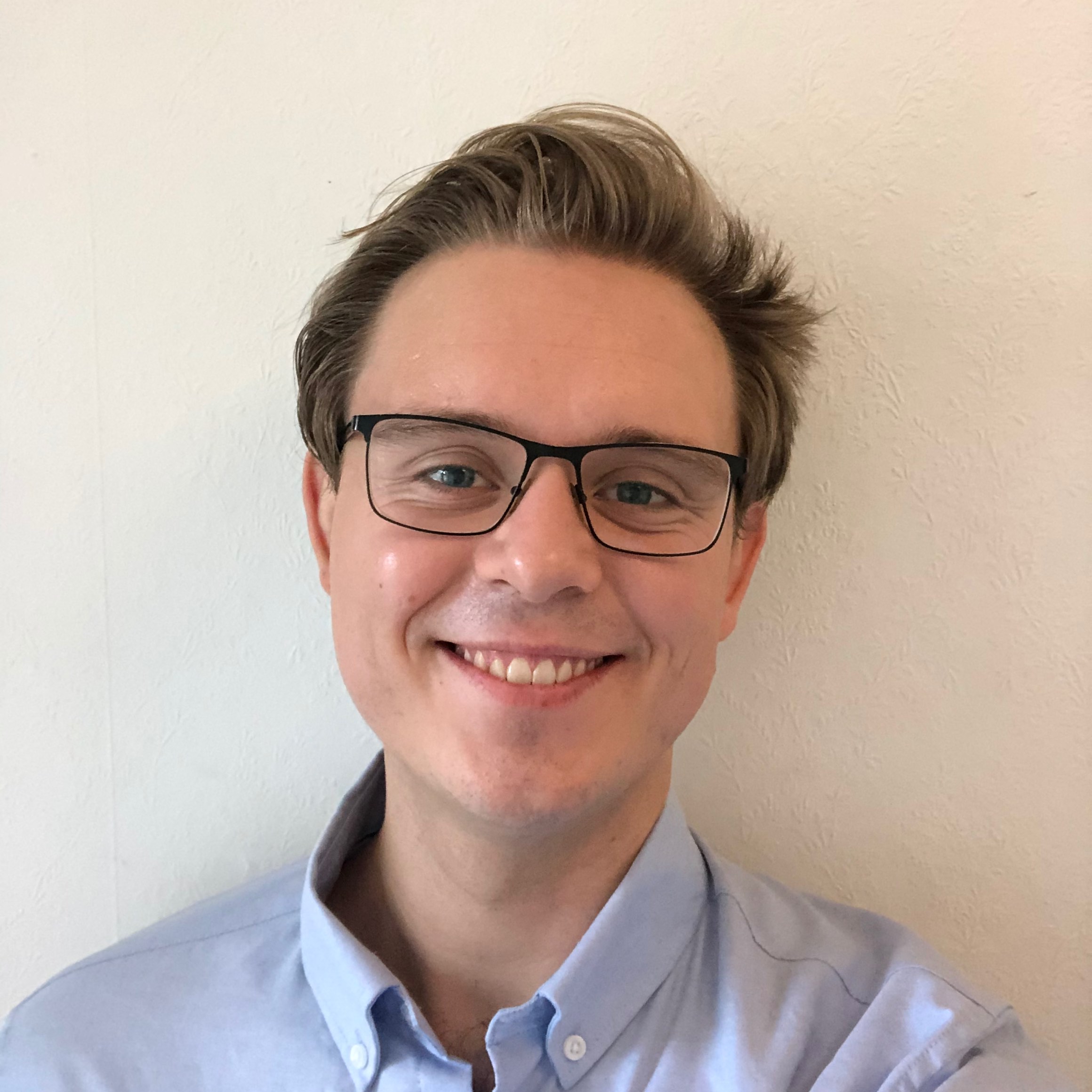
Henrik Røed Sherling
- Scholar
- Norway
- 2022 PhD Philosophy
- St John's College
My research at Cambridge is about the concept of mental disorder. I am researching how classifications and diagnoses can influence and interact with the ways that mental disorders are experienced and expressed—and how these interactions are taken into account by psychiatrists when they write patient notes and make diagnoses. These interactions are called "looping effects" when our classifications have to be updated to stay on top of the new experiences and expressions which they themselves created. My hope is that a careful analysis of these looping effects, and how they factor into practice, can help us better understand the concept of mental disorder. My previous research was focused on the foundations of quantum mechanics, in particular the Many Worlds interpretation. This work was part of my MSci at King's College London. My focus has since shifted to the philosophy of psychiatry, but my interest in the philosophy of physics and the philosophy of science remains.
Previous Education
King's College London (University of London) Physics and Philosophy 2020
Links
William Snyder
- Scholar
- United States
- 2021 PhD Psychiatry
- Trinity College
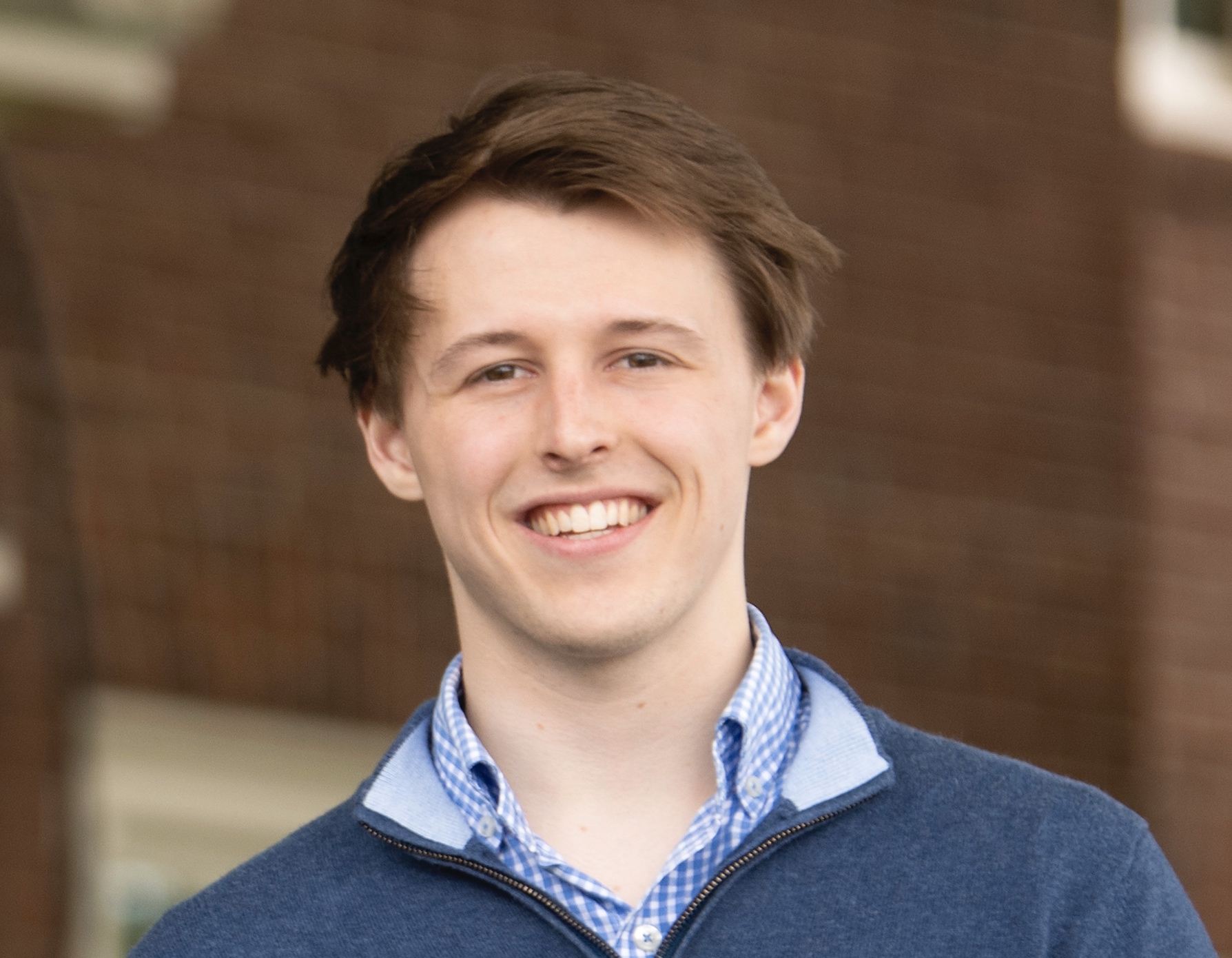
William Snyder
- Scholar
- United States
- 2021 PhD Psychiatry
- Trinity College
Behind every brain MRI is a person with a unique set of traits, but accessing which brain features contribute to one’s behavior, in health and disorder, is an ongoing challenge. Curious about this, in high school I began developing neuroimaging methods, examining large publicly available fMRI datasets. As an undergraduate at Bucknell University in Pennsylvania, the potential of using mathematics to advance brain mapping within these datasets captivated me. I trained with the Geisinger-Bucknell Autism and Developmental Medicine Institute, learning how graph theory methods can help understand patterns of brain folding and function that relate to psychiatric and neurodevelopmental conditions. Working with labs at the NIH, the University of Miami, and Forschungszentrum Julich exposed me to a variety of imaging methods that can further capture the intricacies of the human brain. In my doctoral studies in psychiatry at Cambridge, I will work in Prof. Ed Bullmore’s lab to study infant and adolescent development, combining graph theory analyses of brain folding and brain networks. I hope to contribute to the growing field of precision medicine, advancing treatments for disorders based on markers in the brain.
Previous Education
Bucknell University Neuroscience 2021
Emma Soneson
- Alumni
- United States
- 2018 PhD Psychiatry
- Clare College

Emma Soneson
- Alumni
- United States
- 2018 PhD Psychiatry
- Clare College
Emma graduated with a PhD in Psychiatry in 2023. Her doctoral research focused on how public health approaches can improve the identification of and response to mental health difficulties in children and young people. Throughout her time at Cambridge, Emma's research, leadership, and impact were recognised with several awards, including the Bill Gates Sr. Prize, the Clinical School's Milo Keynes Prize for Outstanding Dissertation, the Vice Chancellor's Awards for Research Impact and Engagement, and the NIHR Mental Health Research Incubator's Prize for 'Collaborative Involvement of Patients and the Public'.
Emma is currently a Senior Postdoctoral Researcher in the Department of Psychiatry at the University of Oxford as well as a Fulford Junior Research Fellow at Somerville College. Her varied research programme covers many aspects of child and adolescent mental health, including psychiatric epidemiology, intervention development and evaluation, implementation, and methodological research. The ultimate goal of her work is to reduce the incidence, prevalence, and impact of child and adolescent mental health difficulties, with a particular focus on better supporting children and adolescents from marginalised and minoritised groups.
Previous Education
Yale University
University of Cambridge
Links
https://www.psych.ox.ac.uk/team/emma-soneson
https://twitter.com/emma_soneson
Sonja Stiebahl
- Alumni
- Germany
- 2020 PhD Psychology
- King's College

Sonja Stiebahl
- Alumni
- Germany
- 2020 PhD Psychology
- King's College
I grew up in Germany and moved to Oxford for my Bachelor's Degree in Experimental Psychology. Throughout my degree I developed a passion for neuroscience and psychiatry and started a research degree in Cambridge in basic and translational neuroscience. During my PhD I want to investigate the cellular processes involved in addiction and hopefully open up new avenues that may lead to the development of treatments. I further hope to take courses in public engagement and health policy and use my knowledge as a researcher to work together with policy makers in the health sector in the future.
Previous Education
University of Cambridge Neuroscience 2020
University of Oxford Experimental Psychology 2019








